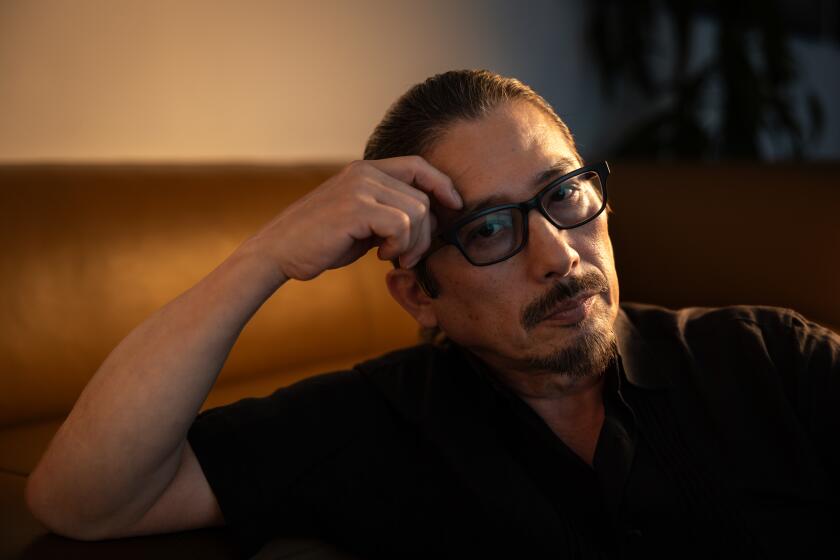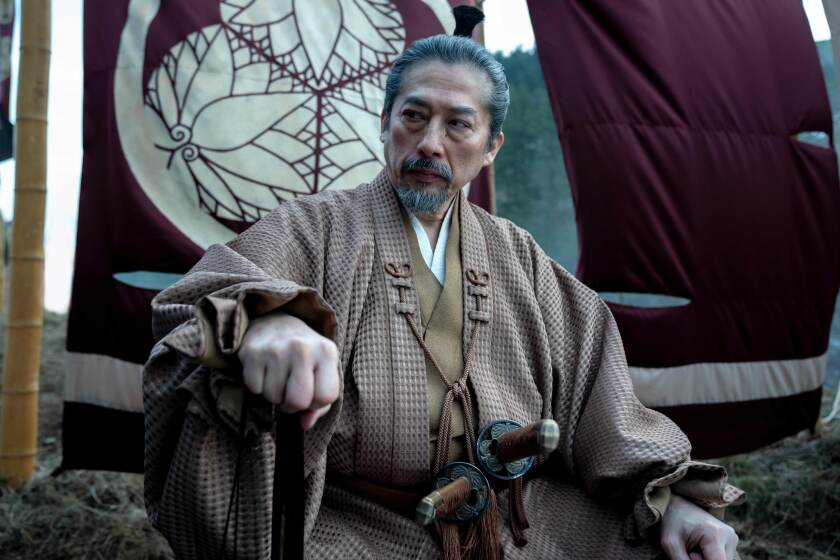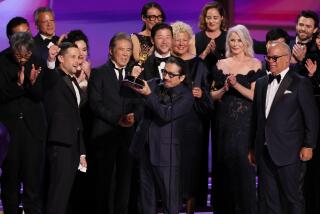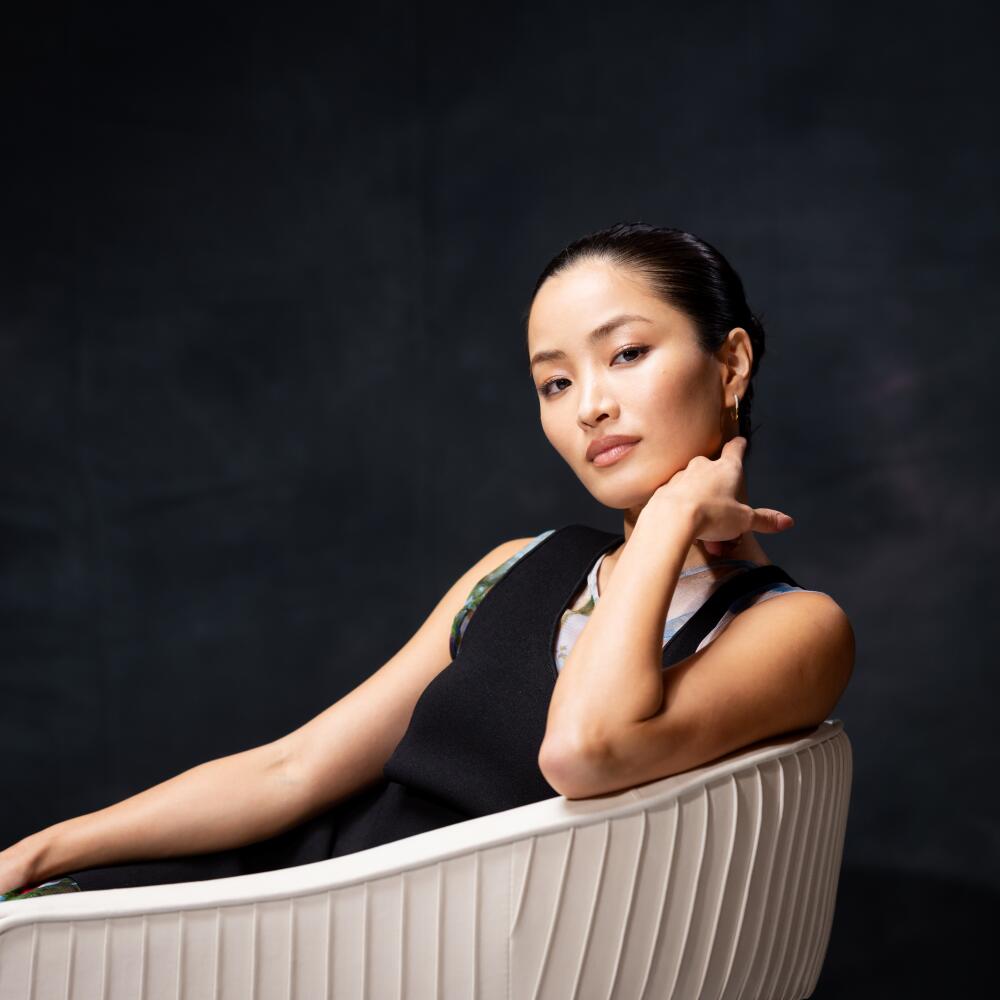
- Share via
Anna Sawai was born in New Zealand to Japanese parents, lived in Tokyo, Hong Kong and the Philippines as a child, and has been spending a lot of time in Los Angeles lately, largely to promote the series in which she stars, “Shōgun.” But ask her where home is and she doesn’t hesitate to reply.
“Japan is where my heart belongs,” she said in a recent video interview. “When I was growing up in Tokyo I wanted to get out of there. I felt like people were too proper, and I missed living in the Philippines. But after traveling for work outside of Japan and spending time away, I’m realizing how much it is a part of me.”
Her love for the Land of the Rising Sun is a big reason why she was so excited to take on “Shōgun,” a series drenched in period detail and Japanese history. Sawai, 31, plays Lady Mariko, a translator in early 17th century Japan who suddenly finds herself in a deceptively powerful position. She comes from a family disgraced when her father killed a corrupt lord. Then an English ship’s pilot, John Blackthorne (Cosmo Jarvis), washes up on the shores of the fishing village of Ajiro and soon finds himself a pawn in an epic civil war, as the cagey Lord Toranaga (Hiroyuki Sanada) faces a power grab by his fellow regents.
The actor-producer was keenly aware of telling the story through a Japanese lens, unlike the 1980s miniseries. It’s a good start, he says, toward introducing his culture to the world.
Knowing Mariko’s fluency in Japanese and English (which she shares with Sawai), and her discretion, Toranaga enlists her to be his conduit to the white “barbarian,” a relationship that generates sexual tension you could cut with a sword — which only ramps up when her abusive husband, presumed dead, returns very much alive.
“She is a very complex, fragile soul,” Sawai said. “She’s bottled up all of this suffering and is unable to release it. But she also has this resilience despite her brokenness. If you’ve been through what she’s been through, it wouldn’t be strange that you would have that resilience. She has this core power, and I think that we see that in all the women in the series.”
Indeed, the female characters in “Shōgun” share a steely quality born of the need to forge a path in a highly patriarchal society. They include Fuji (Moeka Hoshi), who holds a knife to her own neck when asked to hand over her baby for execution (her husband has offended the Council of Regents by speaking out of turn) and later becomes Blackthorne’s consort; Lady Ochiba (Fumi Nikaido), mother to the heir she protects with violent intensity; and Gin (Yuko Miyamoto), who runs the tea house/brothel in Ajiro and proves to be a deft political infighter in her own right.
For Sawai, the strength and depth of the “Shōgun” women was a big part of the series’ appeal, and provided contemporary resonance.
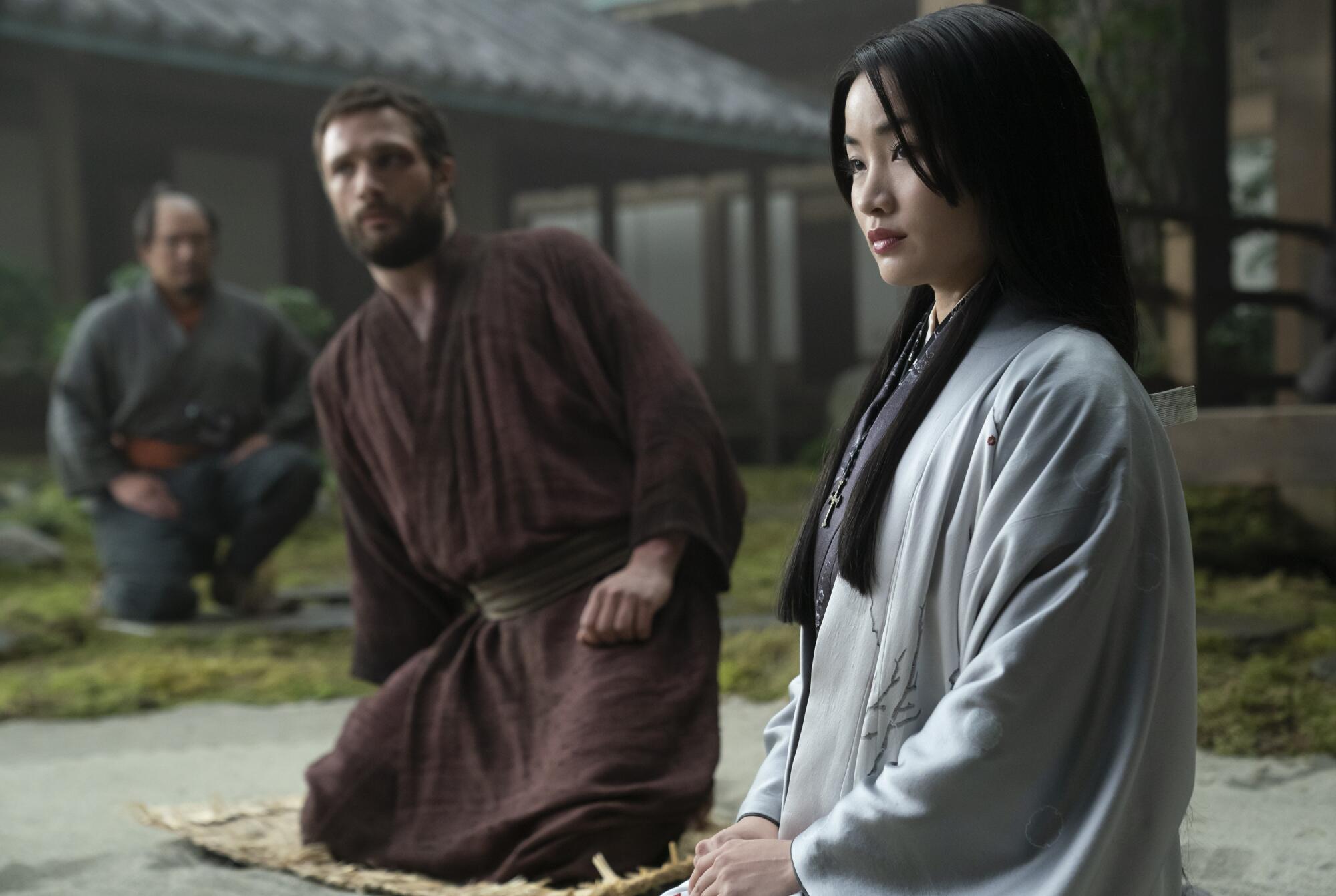
“They’re all living in a controlled society,” she said. “I think that’s something that we see even today in Japan, where there’s a certain expectation for women, and you’re not supposed to do this, or you’re not supposed to say this if you’re a female. We see the struggles that Mariko is going through, and in the end, we’re really able to see the power that these women have.”
Sawai caught the performing bug as a child, when she landed the title role in a Japanese television production of “Annie” (which seems to be an international rite of passage for young actresses). She saw herself primarily as a singer, and reached fame in Japan as one of the lead singers in the girl group Faky. But she never really turned her back on acting. At 15, she landed a role in the movie “Ninja Assassin” (2009), then went back to the singing world, where she was more established. She decided to give acting another go in 2019, and quickly started racking up roles in movies (the 2021 action sequel “F9: The Fast Saga”) and television (2022 drama series “Pachinko”).
“Shōgun” presented some challenges for her, including mastering period Japanese, learning to walk in a kimono and learning the proper way to kneel: “You’re supposed to stand up straight, and you’re not allowed to use your hands. You have to just use your thigh muscles. So it was a bit of a workout,” she says.
Sanada, who in addition to playing Toranaga was a producer and all-purpose advisor on the set, took Sawai under his wing and became a sort of unofficial tutor in the ways of feudal Japan. He was wowed by his pupil’s dedication and work ethic.
“Her effort was so great, and she was a quick learner,” he said in a video interview. “She asked questions until she understood perfectly and spent a long time preparing. She had long, long pieces of dialogue in English and Japanese, and had to learn traditional Japanese and fighting included, but she never gave up. And she did everything on time. I’m so proud of her. Only Anna could play this role.”
Our BuzzMeter panel of veteran TV journalists and pundits offers their take on what will take the awards at the 2024 Emmys on Sept. 15.
“Shōgun” is based on the same James Clavell novel as the 1980 miniseries that starred Richard Chamberlain and Toshirô Mifune. But it’s a much different series, made in and for a much different time. It uses subtitles in nearly every scene, one of many ways it strives for authenticity and respect for Japanese culture. Sawai hasn’t seen the earlier series; “Shōgun” creators Rachel Kondo and Justin Marks wanted the cast of the new series to come in with a fresh perspective.
But she knows the new series is a landmark in its accurate and epic depiction of a bygone era in Japan.
“For me, as a Japanese person, it was important that we did it with more authenticity and accuracy this time around,” she said of the series that, it was recently announced, will be returning for at least one more season. “The details really do matter. So I think with our show, we’re bringing it a step forward.”
More to Read
From the Oscars to the Emmys.
Get the Envelope newsletter for exclusive awards season coverage, behind-the-scenes stories from the Envelope podcast and columnist Glenn Whipp’s must-read analysis.
You may occasionally receive promotional content from the Los Angeles Times.
